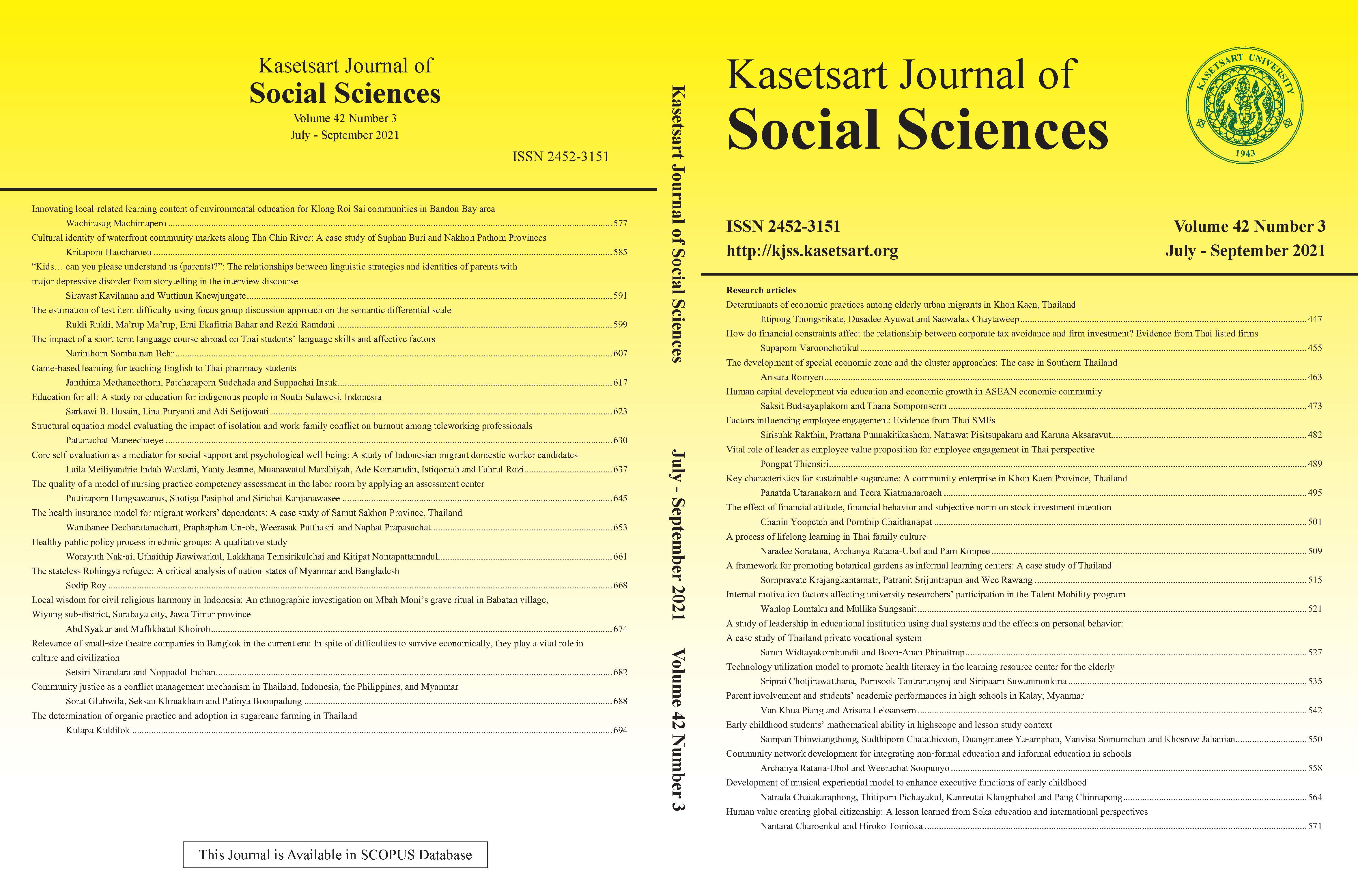A framework for promoting botanical gardens as informal learning centers: A case study of Thailand
Keywords:
botanical gardens, informal learning centers, service marketing mixAbstract
A botanical garden is an institution for scientific research, conservation, education, and recreation. However, botanical gardens in Thailand are confronted with problems, as they cannot reach their potential as informal learning centers because of their low number of visitors. Thus, the opportunity for learning from these precious learning centers is being wasted. To overcome these challenges, this case study conducted in-depth interviews with 16 botanical garden executives and staff members and five focus group discussions with 60 community leaders. It also applied a service marketing mix concept to create a potential framework for promoting botanical gardens in Thailand. The results showed that this framework can therefore help botanical gardens in Thailand attract more visitors and become more effective informal learning centers for visitors from around the world. Ultimately, this will revive their main functions and importantly, cultivate environmental awareness among a larger number of visitors.
Downloads
Published
How to Cite
Issue
Section
License

This work is licensed under a Creative Commons Attribution-NonCommercial-NoDerivatives 4.0 International License.
This is an open access article under the CC BY-NC-ND license http://creativecommons.org/licenses/by-nc-nd/4.0/










